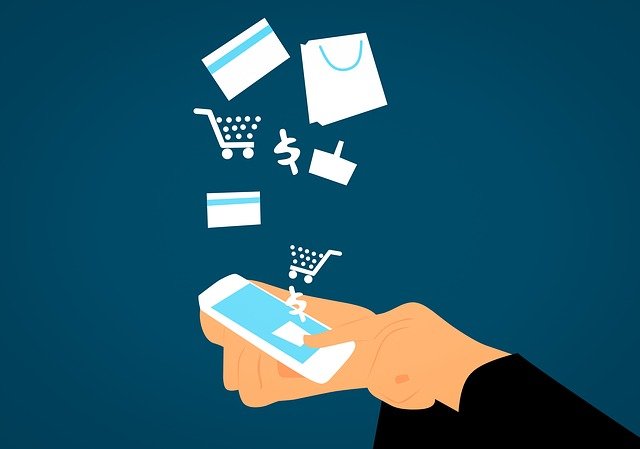With an inflation rate on the rise, many people have noticed price increases; things that people were once able to afford easily are now causing people to dig deeper and deeper into their pockets. Luckily (or not so luckily), buy now, pay later services have recently become popular as a way to make more expensive items easier for people to afford.
Afterpay is a hybrid between credit cards and traditional loans. The company advertises itself as being a “better way to pay” with no interest and no fees – as long as you pay on time, of course.
Instead of a customer paying $60 for a pair of shoes upfront, Afterpay gives them the option to pay $15 at the time of purchase and then make three more payments of $15 every two weeks. As long as the customer makes all of the payments on time, the service is completely free.
Senior Brady Hunter has experience with using Afterpay. While he has used it responsibly, he warns others of the possible dangers of using this type of a service. “I personally think Afterpay is a really effective method for online purchases, but it is vital to be responsible with your spending habits,” he said. “Paying for something but not directly seeing money go out of your account is a dangerous endeavor.”
Many high school students, even adults, lack the financial education that is vital for saving and spending money responsibly. This is extremely dangerous considering 73% of Afterpay’s customers are millenials and members of Gen Z. Since younger generations are less financially experienced, they are more likely to use Afterpay and similar services irresponsibly.
When people buy one item using Afterpay and the experience is easy, they may begin to pay for multiple items using a company such as Afterpay. They can quickly lose track of how much money they owe. This leads to stacked up debt which causes a plethora of problems for people.
Afterpay falsely incentivizes the idea of having debt and can instill this in people before they even have a chance to become financially literate on their own.
Buy now, pay later services are particularly enticing to young people. Teens in entry level jobs can be easily tempted by these companies to use their services to get what they want immediately, failing to realize that they must actually pay for the entire item.
Employed senior Jake Dolphin does not believe Afterpay is a great idea for teens. “Afterpay makes products seem affordable to teens that they can’t really afford and takes advantage of the fact that teens are likely to make a poor financial decision,” Dolphin said.
Dolphin expanded on his thoughts by offering a possible solution to this problem with teens. “If you have to spread out payments for an item, you most likely cannot afford it, so just don’t buy it,” he said.
Ramsey Solutions advocates for saving rather than using buy now, pay later services. Rather than paying $20 at the time of purchase for the item and then another $20 every two weeks until the $80 item can be paid for, just put aside $20 every two weeks for two months, and then buy the $80 item when enough is saved.
This will also help solve the issue of impulse buying. While you are waiting to have enough money saved up to purchase the item, you can really ponder whether the item is really worth it or not. There is power in patience, and the “need it now” mentality when it comes to buying items usually only leads to regret.
Although the consumer receives no benefit from using Afterpay, the company does. Afterpay either makes their money from partnering with businesses or when consumers make late payments. This means they count on consumers to make late payments and go into debt as a way to make money. This begs the question: Are buy now, pay later companies ethical?
After all, these companies thrive on people going into debt and being financially trapped. Companies should not see unethical profit as an incentive. A person’s financial status has countless impacts on their quality of life, so companies that benefit from harming someone’s financial situation are morally wrong.
Even considering Afterpay’s countless negative effects on society, there are reasons for these companies to still exist. Afterpay promotes greater spending on goods and services, which stimulates economic growth. While this growth is temporarily valuable for the economy, the increased use of these services for larger purchases could eventually lead to large scale problems.
If more and more people continue to use Afterpay and similar services on increasingly higher cost goods, we could potentially see the effect of overborrowing ripple across the economy, similarly to the 2008 economic crisis.
The growth and spread of Afterpay and other buy now, pay later services must come to an end before society is negatively affected on a large scale.








